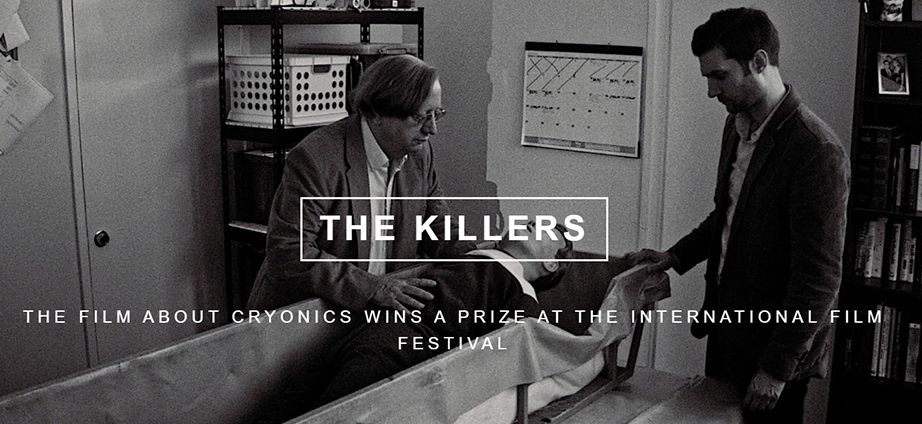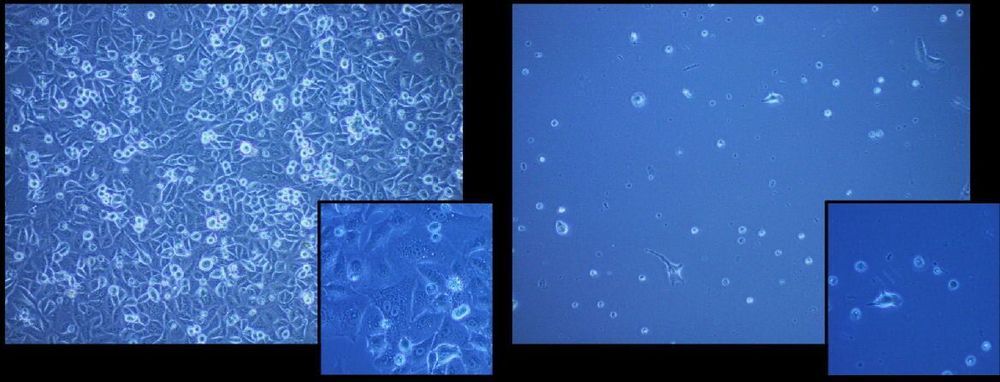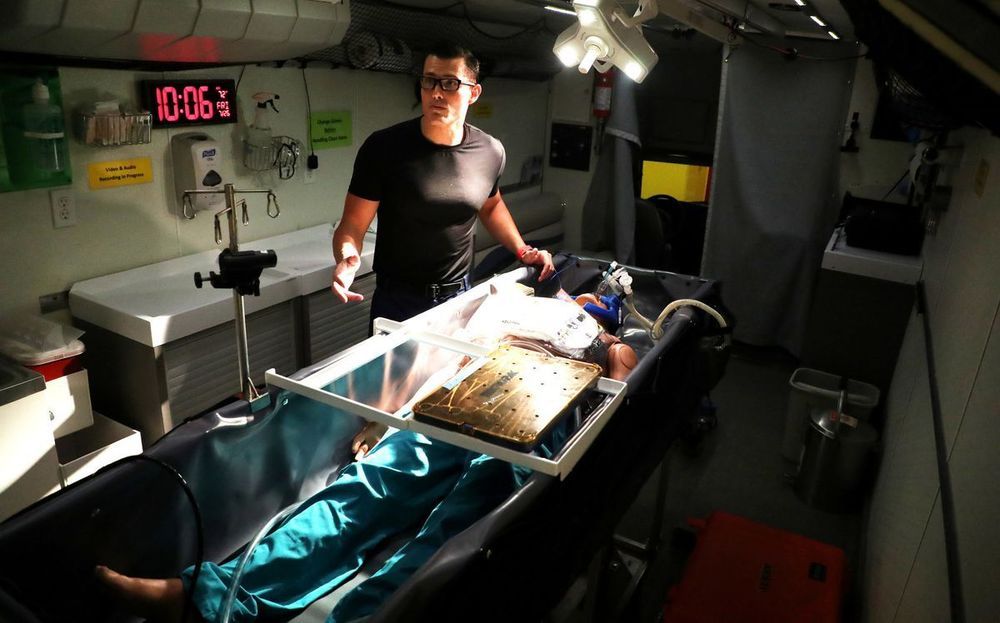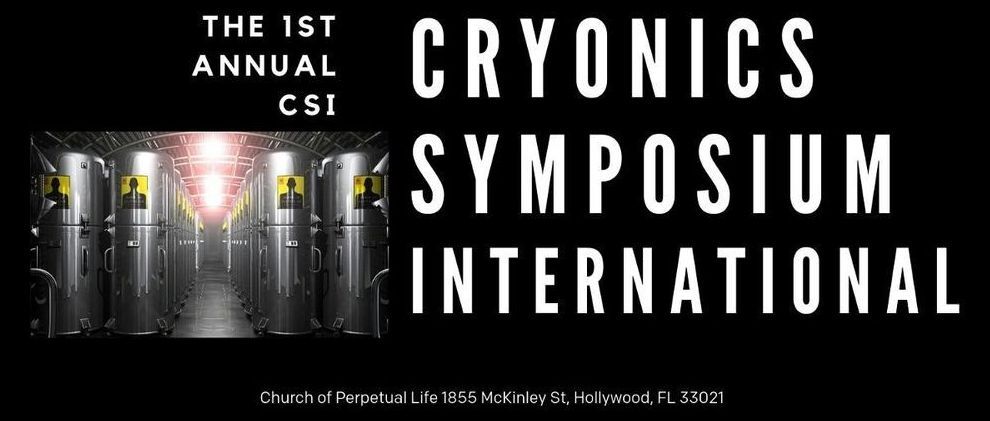Category: cryonics – Page 17

The film about cryonics wins a prize at the international film festival
The Killers, the short film about cryonics shot by Russian director Vlad Kozlov, who works in the USA, won a Best Director prize at the 37th Flickers: Rhode Island International Film Festival (RIIFF).
RIIFF is one of the most important international film festivals supporting independent filmmakers. The festival has been held annually since 1982 during the second week of August and lasts six days. Its main goal is to discover new talents of independent cinema. More than 5,426 independent films selected from more than 68,000 received applications were presented to the public during the time of existence of the festival. In 2019, 321 films from 51 countries were presented at the festival, which was held from August 6 to August 11 in Rhode Island, USA.
Cryonics as the central element of the plot was shown in a film of this level for the first time. The main roles in the film are played by world-famous actors such as Sherilyn Fenn (Twin Peaks) and Franco Nero (Django). The role of Max, the main character, was played by a young and promising American actor Jeff DuJardin, who had previously worked with Vlad Kozlov on the set of Silent Life, the film about the star of silent film Rudolf Valentino. The producers of the film are Vlad Kozlov, Natalia Dar, Yury Ponomarev, Dmitry Pristankov and David Roberson.
Bill Faloon: A Life Long Quest To Reverse Human Aging!
Ira Pastor, ideaXme longevity and aging Ambassador and Founder of Bioquark interviews Bill Faloon, Director and Co-Founder, Life Extension Foundation and Founder of The Church Of Perpetual Life.
Ira Pastor Comments:
On the last several shows we have spent time on different hierarchical levels the biologic-architecture of the life, disease and aging process. We’ve spent some time talking about the genome, the microbiome, tissue engineering, systems biology, and dabbled a bit in the areas of quantum biology, organism hydro-dynamics, and even chronobiology.
As exciting and promising as all these research paths are, at the end of the day, in order for them to yield what many people are looking for, that is radically extended healthspans and lifespans, there needs to be an organized system of human translation build around them, integrating these various products, services and technologies, from supplements, to biologics, to functional foods, to cosmeceuticals, to various physio-therapeutic interventions, and so forth, as well as all the related supporting advocacy and education, as biologic aging is truly a multi-factorial, combinatorial process that is never going to be amenable to big pharma’s traditional “single magic bullet” philosophy that it promoted throughout the last century.
For today’s guest, I could think of no one better to talk with us about this topic and take us into the future on this front, than Bill Faloon, Director and Co-Founder, Life Extension Foundation (LEF), a consumer advocacy organization with over 100,000 members that funds research (investing million per year in researchers around the globe) and disseminates information to consumers about optimal health, and more recently in the area of actionable clinical interventions regarding human biologic age reversal, through a fascinating new project called the Age Reversal Network, defined as an open-source communications channel to exchange scientific information, foster strategic alliances, and support biomedical endeavors aimed at reversing degenerative aging.
Bill is also the Founder of The Church Of Perpetual Life, a nonprofit transhumanist organization aiming to combine discussion integrating spirituality, community, and aging scientific research in a single unified forum.
He’s a board member of the Coalition For Radical Life Extension, which is the organizer of annual RAADfest conference (Revolution Against Aging and Death) which is the world’s largest gathering of radical life extension enthusiasts.

Freezing cells made safer thanks to new polymer
Cell freezing (cryopreservation)—which is essential in cell transfusions as well as basic biomedical research—can be dramatically improved using a new polymeric cryoprotectant, discovered at the University of Warwick, which reduces the amount of ‘anti-freeze’ needed to protect cells.
The ability to freeze and store cells for cell-based therapies and research has taken a step forward in the paper “A synthetically scalable poly(ampholyte) which dramatically Enhances Cellular Cryopreservation.” published by the University of Warwick’s Department of Chemistry and Medical School in the journal Biomacromolecules. The new polymer material protects the cells during freezing, leading to more cells being recovered and less solvent-based antifreeze being required.
Cryopreservation of cells is an essential process, enabling banking and distribution of cells, which would otherwise degrade. The current methods rely on adding traditional ‘antifreezes’ to the cells to protect them from the cold stress, but not all the cells are recovered and it is desirable to lower the amount of solvent added.


The First Annual Cryonics Symposium International (CSI) at the Transhumanist Church of Perpetual Life on Saturday, July 27
Are you Cryo-Curious? Learn about the real facts of cryonics at the first Cryonics Symposium International.
The mission of Cryonics Symposium International is to bring leaders in the cryonics community together to learn from each other and promote the emerging science of cryonics.
With master-of-ceremonies Rudi Hoffman, the first time ever assembly of luminaries from different cryonics organizations will be presenting on the concepts behind the science and research of cryonics at the Church of Perpetual Life in Hollywood, Florida on Saturday, July 27th from 10 AM — 5 PM. The Church is located at 1855 McKinley St, Hollywood, FL 33021. This historic event is free-of-charge: donations are graciously accepted. Attendees will enjoy complimentary meals for the duration of the event. Seats are limited. RSVP is required via Eventbrite https://www.eventbrite.com/e/cryonics-symposium-internationa…———-
Cryogenic freezing wants to be tech’s ‘holy grail’ in the fight against dying
Give death the cold shoulder.